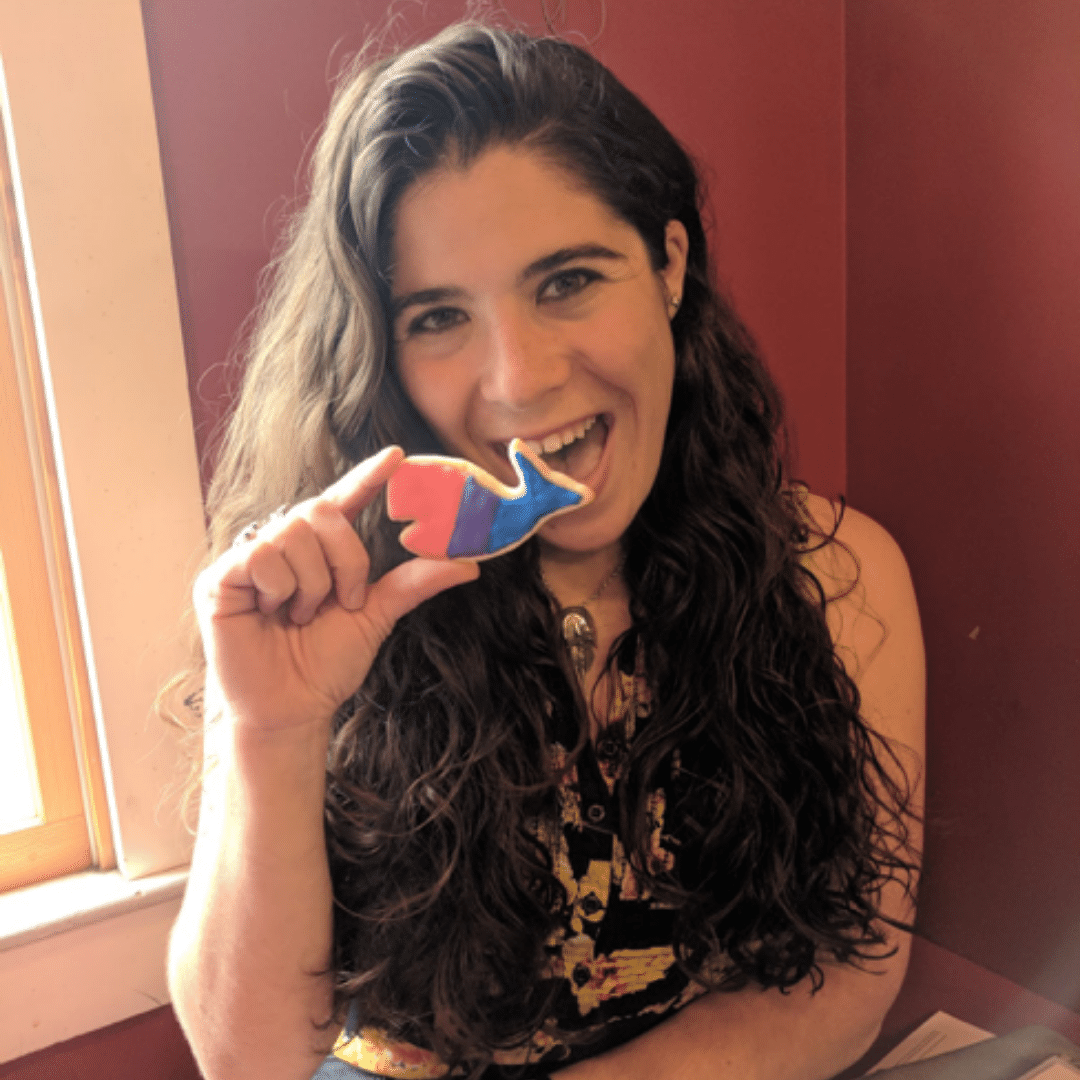
Meet Maine-eDNA: Rene Francolini, Graduate Research Assistant
Jane Horovitz, EPSCoR Student Writer
Rene Francolini didn’t even know the field of computational biology existed until her high school computer science teacher suggested that she combine her knack for logic and puzzles with her love for ecology and marine biology. Francolini did just that, completing a degree in biology with a focus in computational biology at Carnegie Mellon University and later completing an accelerated Masters degree there.
During her high school years, Francolini spent summers interning at the Massachusetts Audubon Society, where she worked on oyster reef restoration projects and horseshoe crab counting in Cape Cod.
“My first love was doing research that felt connected to a local community that relies on it,” Francolini said, referring to her research with her high school internship. After receiving her Masters, she worked as an oyster farmer for a period of time. “While working as an oyster farmer, having a lot of connection to folks who rely on the land really made me want to do work that is community focused, has implications for policy, and direct contact with those who use the ocean.” That’s what Maine EPSCoR’s Maine Environmental DNA (Maine-eDNA) program represented to Francolini.
Francolini has been working with environmental DNA (eDNA) for the last two years at Woods Hole Oceanographic Institute (WHOI), so she was excited to dive into another project with eDNA, this time with a more coastal and community focus compared to her work on the open ocean at WHOI. There, Francolini worked in the environmental toxicology lab, and later the molecular ecology lab, where she was part of the Ocean Twilight Zone project, which focuses on understanding the mesopelagic zone, or “twilight zone” of the ocean. She also worked on developing eDNA protocol and robotic oceanographic samplers that collect eDNA from deep within the ocean.
Francolini’s computational biology skills will be a great asset to the Maine-eDNA program. When eDNA is sequenced, it spits back overwhelmingly large amounts of data, that programs such as Excel cannot properly hold. Francolini can apply advanced computational programs and models to parse through and manipulate all of the data to analyze what is most important and to identify what specific information the data provides.
As an incoming University of Maine School of Marine Sciences PhD student and a Graduate Research Assistant with Maine-eDNA project, her work is focused on the Gulf of Maine’s kelp forests. She will be advised by Doug Rasher (Senior Research Scientist at Bigelow Laboratory for Ocean Sciences) and Damian Brady (Agatha B. Darling Professor of Oceanography at the University of Maine).
Francolini’s interest in not just one particular aspect of biology, but many, providing her with the opportunity to be involved with multiple areas. “I‘m personally excited that the work we’re doing is going to be combining my three passions,” Francolini explained. “I love doing fieldwork and collecting samples, but I also love doing the molecular and computational work.”
When Francolini isn’t conducting research, she enjoys making baked goods, which she often decorates with science and ocean themes, and documents on her Instagram page: @thebakingbiologist. Once the arts and entertainment industry is able to safely open up again (following COVID-19), Francolini said she will happily balance participating in community theater and playing the saxophone with her science work. She is also the host and producer of a new science history podcast called LabOratory Podcast (@LabOratoryPod). The podcast aims to tell the human stories of retired scientists and professors through interviews, including the challenges they faced and the ways they changed the scientific community. Francolini hopes to begin producing more episodes once she’s fully settled in Maine.
